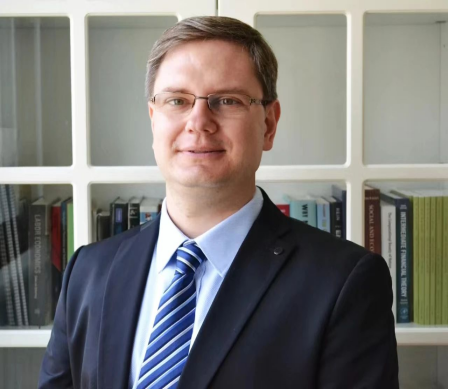学术报告会——Dr. Gergely Horvath
时间: 2023-10-23 07:28:00
Speaker:Dr. Gergely Horvath
Title:Network formation and efficiency in linear-quadratic games: An experimental study
Schedule: Oct 26, TH 2:00-3:30 PM
Location: 诚明楼 (Chengming Hall)RM 315

Introduction: Dr. Gergely Horvath is an Associate Professor of Economics and the Chair of Division of Social Sciences at the Duke Kunshan University. His research focuses on experimental and behavioral economics, social network analysis, labor economics, applied microeconomics and agent-based modelling. He has done research on diverse topics including the impact of social networks on job finding and labor market outcomes, entrepreneurship among ethnic minorities, and whistleblowing in organizations.
His articles have appeared in the European Economic Review (2), Journal of Economic Behavior and Organization (3), Scandinavian Journal of Economics, and Journal of Behavioral and Experimental Economics, Journal of Public Economic Theory, among other journals. His research has been supported by the National Natural Science Foundation of China.
Dr. Gergely Horvath has a B.A. in economics from Corvinus University, Hungary, and an M.A. and Ph.D. in economics from the University of Alicante, Spain. He was a postdoctoral fellow at the Friedrich-Alexander University of Erlangen-Nuremberg, Germany. Before joining Duke Kunshan, he held faculty positions in China at the Southwestern University of Finance and Economics and Xi’an Jiaotong-Liverpool University, and had research visits at the University of Cambridge, the European University Institute, the National Bank of Hungary and Massey University.
Abstract: We experimentally study effort provision and network formation in the linear-quadratic game characterized by positive externality and complementarity of effort choices among network neighbors. We compare experimental outcomes to the equilibrium and efficient allocations and study the impact of group size and linking costs. We find that individuals overprovide effort relative to the equilibrium level on the network they form. However, their payoffs are lower than the equilibrium payoffs because they create fewer links than it is optimal which limits the beneficial spillovers of effort provision. Reducing the linking costs does not significantly increase the connectedness of the network and the welfare loss is higher in larger groups. We obtain that individuals use the relative ranking of effort provision of the opponent to estimate the benefits of linking to them. It follows that they connect to top effort providers and do not initiate otherwise beneficial links to others who rank low in terms of effort provision in the group. This explains the lack of links in the network.




